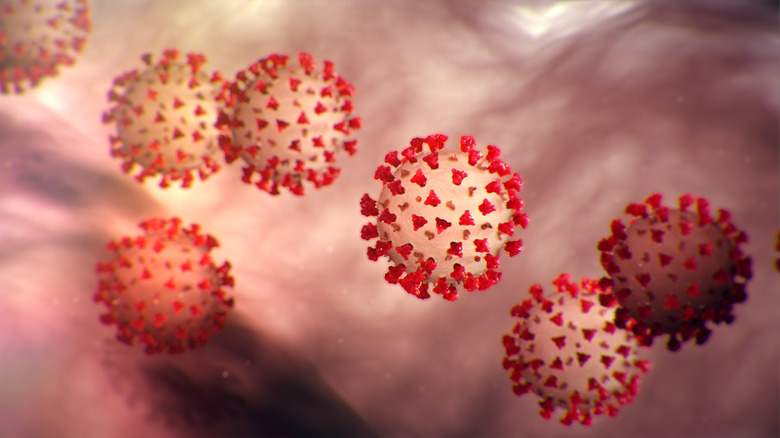FDA Issues Stern COVID-19 Serological Test Warning
The FDA has warned COVID-19 serological test-makers not to overstate the usefulness – or claim federal approval – of their products, cautioning that it may still be too early for such diagnostics to be meaningful. Unlike more widespread test processes, which look for the coronavirus itself in samples taken from patients, serological tests instead look for the body's immune response to an infection.
It's an important distinction, though one which many people seemingly get confused. By detecting whether the virus itself is present, for example, you can see if the patient is currently infected with COVID-19.
However by looking for the immune response – specifically either antibodies or proteins present in the blood that occur when the body is responding to an infection – you can potentially tell whether the patient had coronavirus, even if they are not currently infected. That's important for assessing populations to see how far COVID-19 spread, and to see how many people might have immunity to future infections. Tt can be less useful for diagnostics, though.
"In the early days of an infection when the body's immune response is still building, antibodies may not be detected," the FDA explains. "This limits the test's effectiveness for diagnosing COVID-19 and why it should not be used as the sole basis to diagnose COVID-19."
COVID-19 serological testing is important, but not a quick fix
That question of timeliness is why widespread testing can't rely on serological methods alone. Currently, the FDA has given extenuating authorization to a single serological test under the Emergency Use Authorization (EUA) process, which is allowing for early applications of medications and testing processes during the coronavirus pandemic. That's Cellex Inc's qSARS-CoV-2 IgG/IgM Rapid Test, which is designed to be used by approved laboratories.

Over 70 further test developers have apparently notified the US Food and Drug Administration that they have serological diagnostics available for use. Right now, though, they're not authorized, and none are able to claim approval by the agency.
"However, some firms are falsely claiming that their serological tests are FDA approved or authorized, or falsely claiming that they can diagnose COVID-19," the FDA says. "The FDA will take appropriate action against firms making false claims or marketing tests that are not accurate and reliable."
Without consistent COVID-19 testing it's tough to assess the response
Currently, at least 42 US states have issued some sort of "stay at home" order, intended to force social isolation policies onto residents. Roughly 95-percent of the population is believed to be affected by one of those orders, though several states continue to refuse to enact the measures.
The challenge lawmakers face is understanding how those efforts are impacting COVID-19's progression. Without consistent, widespread availability of testing, pinning down just how impacted populations are by coronavirus is effectively impossible. Instead, there are only mortality figures to base decisions on.
As of April 7, the US Centers for Disease Control and Prevention (CDC) reported there had been 374,329 cases of COVID-19 in the US. That includes not only the 50 states, but the District of Columbia, Puerto Rico, Guam, the Northern Mariana Islands, and the US Virgin Islands. There have been 12,064 deaths.
